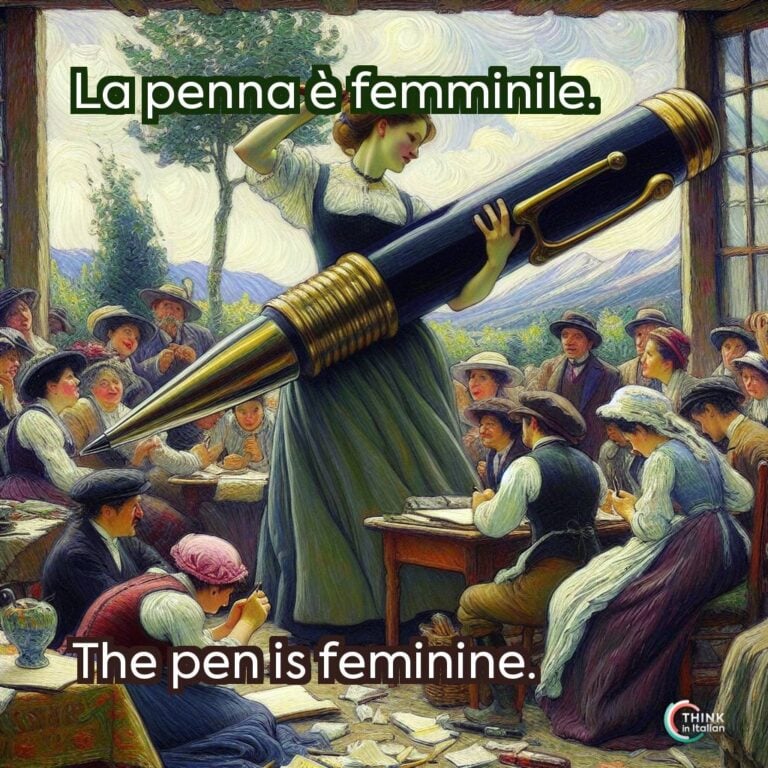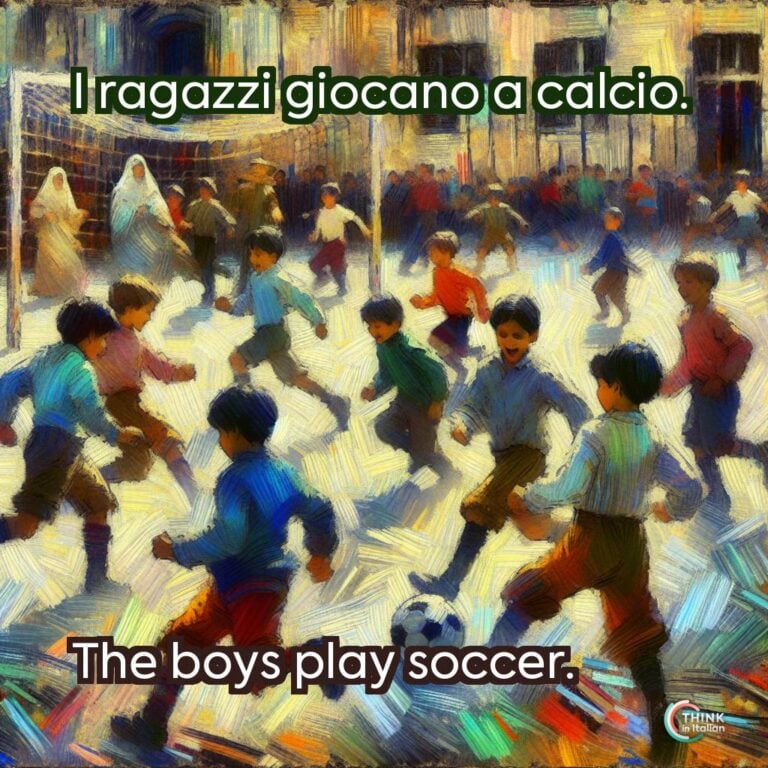Italian Noun Gender
Unlike English, Italian nouns are gendered, which means that every noun is classified as either masculine or feminine. This distinction is merely grammatical, as it has nothing to do with the gender of the items or people described by those nouns.
However, the grammatical gender does affect the grammar surrounding, including articles, adjectives, and pronouns, and reflects Italy’s linguistic history and evolution.
If you’re approaching Italian for the first time, I strongly advice that you study and understand how gender works, as it dictates the structure of sentences and influences the behavior of other grammatical items.
In fact, most of the time you will see gender of both nouns and articles addressed together. In this comprehensive guide I will introduce you to foundational rules to master this crucial aspect of the Italian language.
Basic Rules for Italian Noun Gender
General Patterns
- Masculine Nouns typically end in -o:
- il libro (the book)
- il tavolo (the table).
- Common masculine endings include -ore and -ma:
- il dottore (the doctor)
- il problema (the problem).
- Feminine Nouns typically end in -a:
- la casa (the house)
- la sedia (the chair).
- Other feminine endings include -zione and -ie:
- la stazione (the station)
- la serie (the series).
- Ambiguous Endings
Nouns ending in -e can be either masculine or feminine:
- il fiume (the river, masculine)
- la luce (the light, feminine).
Articles as Gender Clues
Both definite articles and indefinite articles preceding a noun offer an immediate hint about its gender.
- Masculine:
- Singular: il, lo, l’
- Plural: i, gli
- Feminine:
- Singular: la, l’
- Plural: le
Examples:
- la ragazza (the girl) → le ragazze (the girls).
- il ragazzo (the boy) → i ragazzi (the boys).
Exceptions to Gender Rules
Some irregular nouns defy standard rules:
- Masculine nouns ending in -a:
- il poeta (the poet)
- il problema (the problem).
- Feminine nouns ending in -o:
- la mano (the hand).
Also, most foreign-origin nouns often retain a masculine form:
- il computer (the computer).
- il film (the film).
Mastering Italian Noun Gender
Mastering Italian noun gender is to go on a grammatical, cultural, and historical tour. Immerse yourself in the language and master this aspect of Italian.
And remember: la pratica rende perfetti (practice makes you perfect!). The farther on you go, the more these rules will unlock your connections to deeper Italian literature, music, and day-to-day conversation.
Don’t be afraid to make mistakes because those, too, are learning opportunities. With persistence and curiosity, the complexities of Italian noun gender will transform into second nature.






